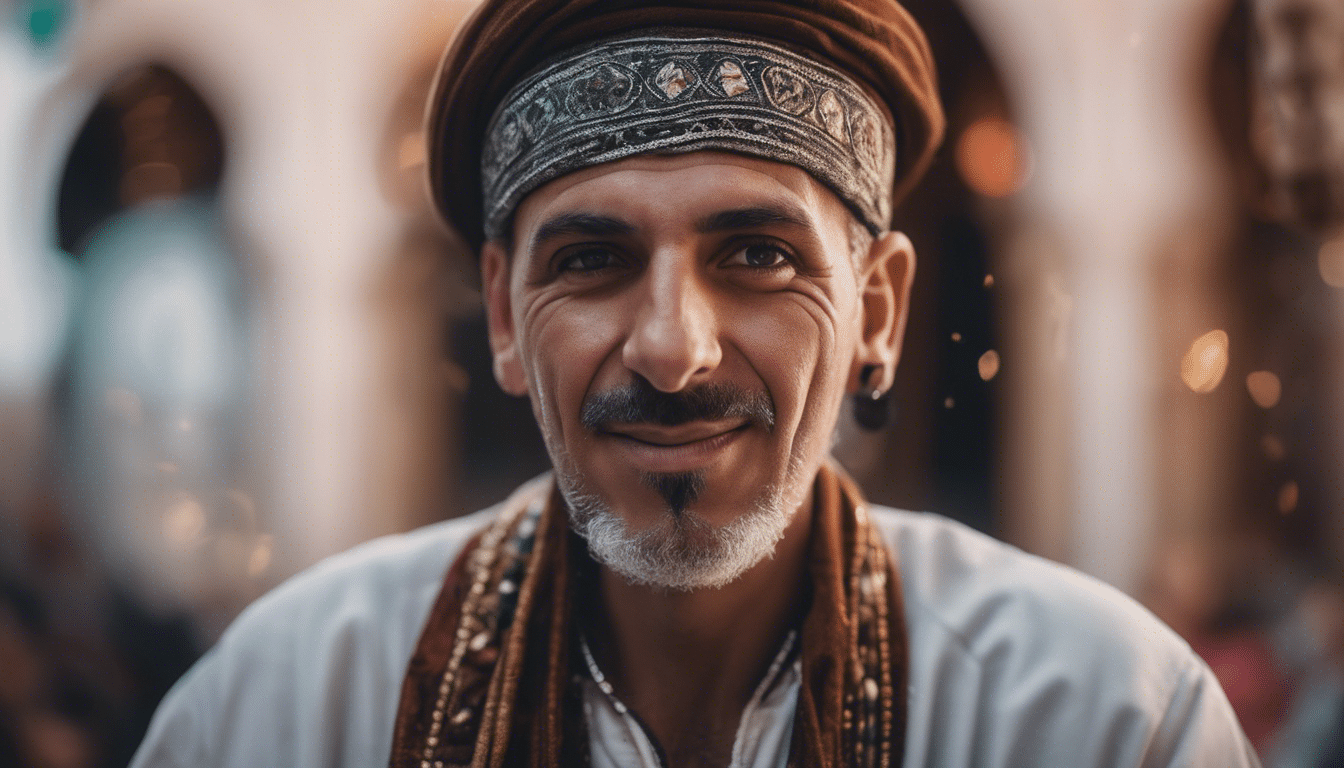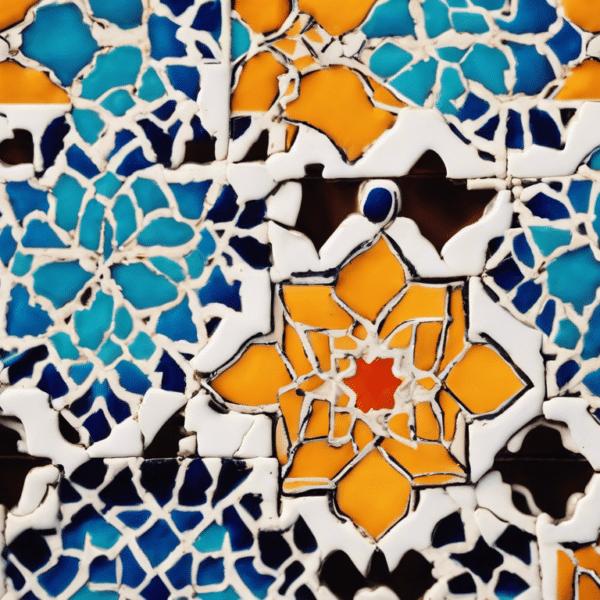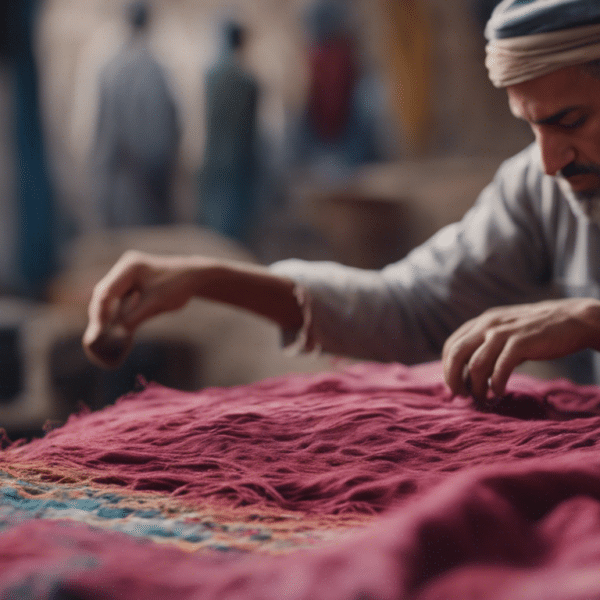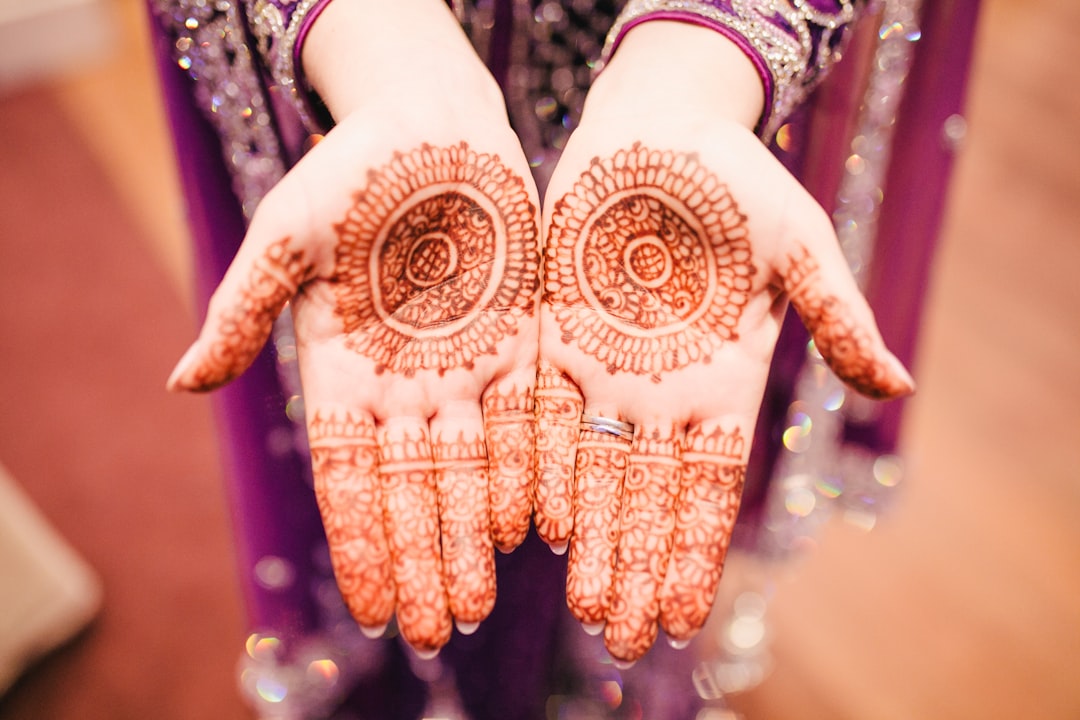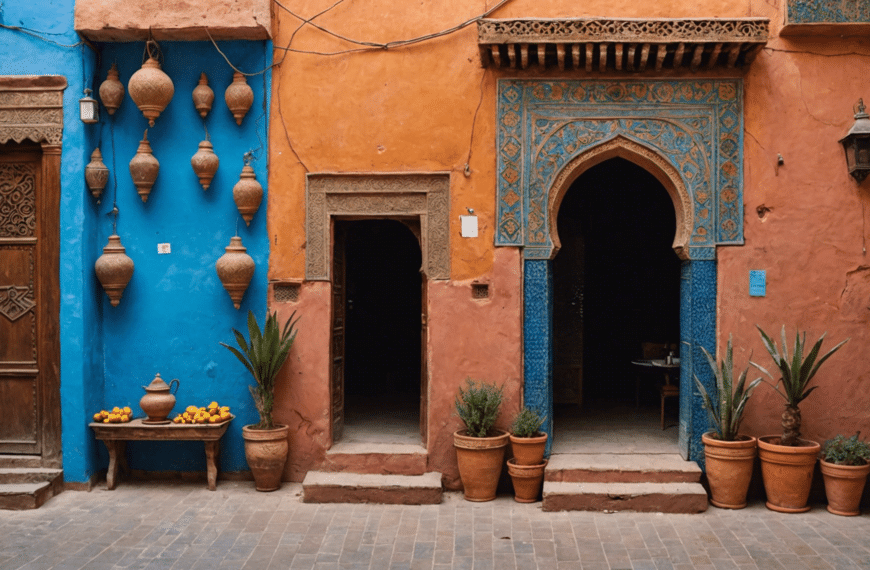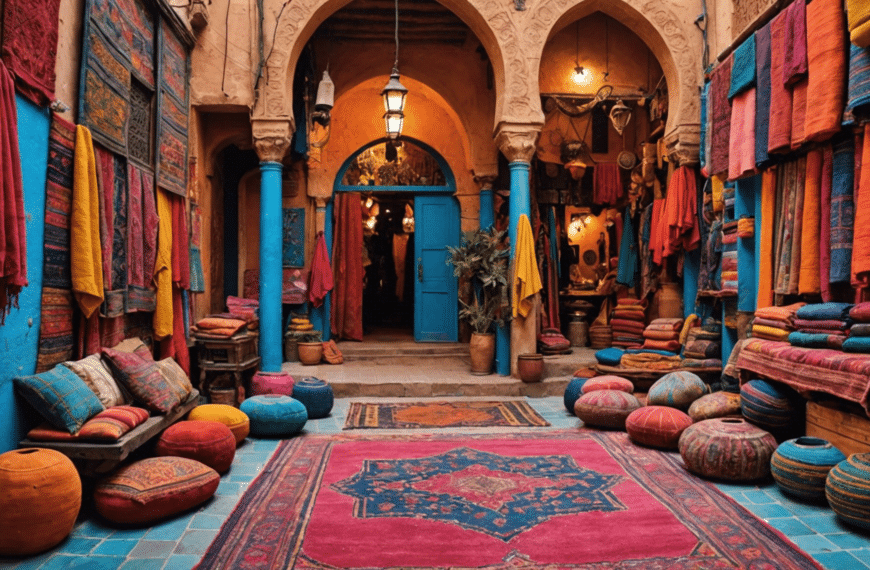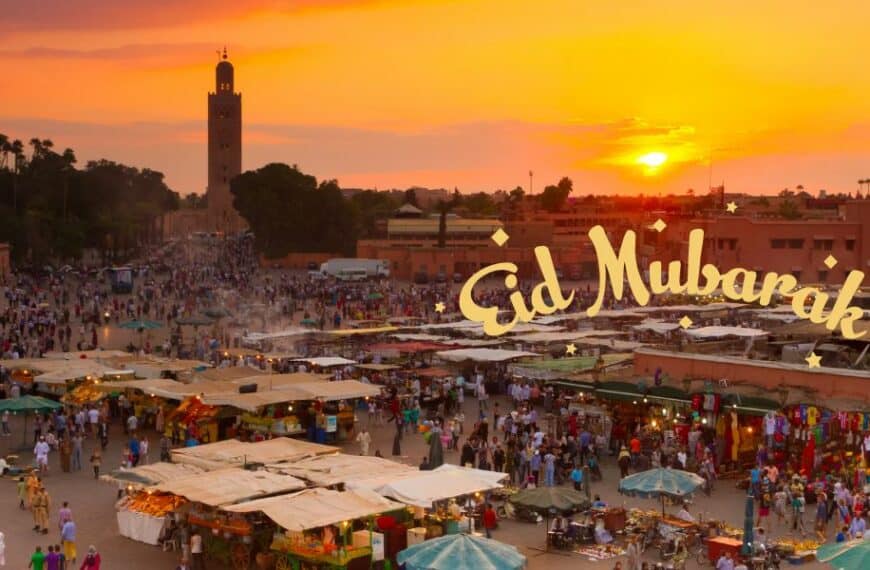In the heart of Morocco’s pulsating culture, Sufi music emerges as a celestial melody that flows through the bustling streets and serene landscapes alike. This ancient soul-stirring art form, deeply intertwined with spiritual practices, offers more than just a pleasant tune; it is an embodiment of a mystical journey, a legacy threaded in the fabric of Moroccan heritage. An article, that is as enlightening as the music itself, reveals why Sufi rhythms are not just notes to the ears, but a resonance with the very spirit of Morocco. Join me as we unravel the hidden chords that make Sufi music an indispensable part of the Moroccan soul.
Understanding the Roots of Sufi Music in Morocco
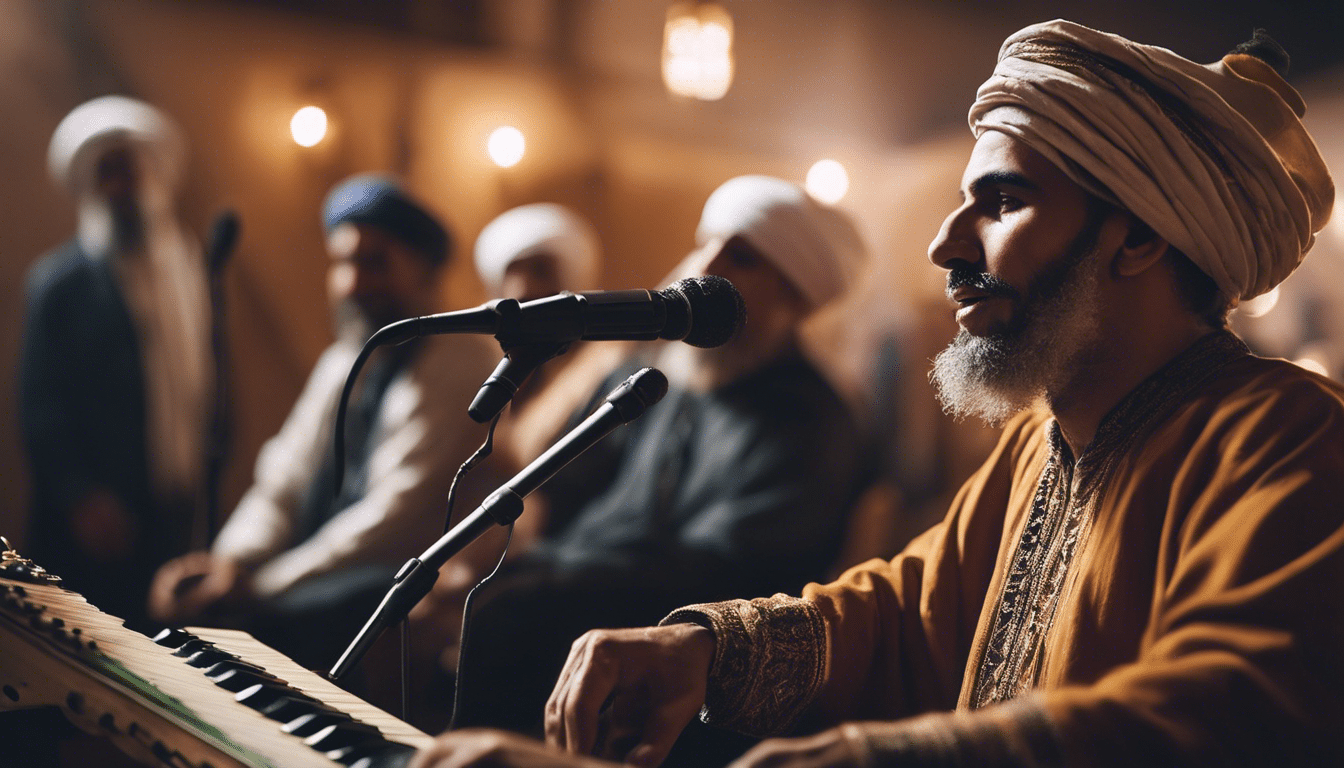
Sufi music, a form of devotional music inspired by the mystic Sufi branch of Islam, resonates through the heart of Morocco’s spiritual heritage. Within the winding alleys of ancient medinas and across the sprawling landscapes, the rhythmic pulse and poignant harmonies of Sufi music invite a transcendental experience that binds listeners to a rich cultural tradition.
The spiritual essence of Sufi music
At the core of Sufi music lies the intent to connect with the divine. Sufi practitioners, known as Sufis, endeavor to reach a state of spiritual ecstasy and union with God through various forms of worship, including music. The Sufi music of Morocco is marked by its hypnotic rhythms and soul-stirring melodies, both of which serve to induce the state of trance that is characteristic of Sufi gatherings, known as hadra or dhikr ceremonies.
The journey of Sufi music in Moroccan culture
The lineage of Sufi music in Morocco can be traced back to the arrival of Islam in the 7th century. However, it was during the advent of great Sufi brotherhoods or tariqas in the Middle Ages that Sufi music began to truly flourish. Different regions and brotherhoods have since embraced and developed distinct musical styles, enriching the country’s musical landscape.
Instruments and vocals in Sufi musical tradition
The traditional ensemble for Sufi music is known as the Sufi hadra orchestra, comprised of both vocalists and instrumentalists. Instruments form an integral part of Sufi music, with the oud (lute), ney (flute), darbuka (goblet drum), and sometimes the kanun (zither), among others, creating a profound soundscape. The human voice, however, remains the primary medium, with singers expressing poetic lyrics that delve into spiritual themes and the quest for divine love.
Renowned Sufi music festivals in Morocco
Moroccan Sufi music has been preserved and celebrated through various festivals that draw enthusiasts from around the world. The Fes Festival of World Sacred Music and the Sufi Culture Festival in Fes are prominent events where the mystical music takes center stage, offering attendees a profound insight into the world of Moroccan Sufism.
Exploring Sufi music’s influence on contemporary Moroccan arts
The influence of Sufi music extends beyond the spiritual realm into the wider arts culture in Morocco. Modern Moroccan musicians often draw upon Sufi musical elements to create fresh, contemporary sounds that bridge traditional and modern aesthetics. This intersection of old and new keeps the essence of Sufi music alive and allows it to continuously evolve while maintaining its spiritual significance.
Sufi music in Morocco stands as a testament to the enduring strength of spiritual music and its capacity to inspire, heal, and transcend cultural boundaries. As one delves deeper into the roots of Sufi music within this vibrant North African country, it becomes clear that this art form is much more than entertainment—it is a way of life, a means of connection, and a channel for the divine.
The Spiritual Essence of Sufi Melodies
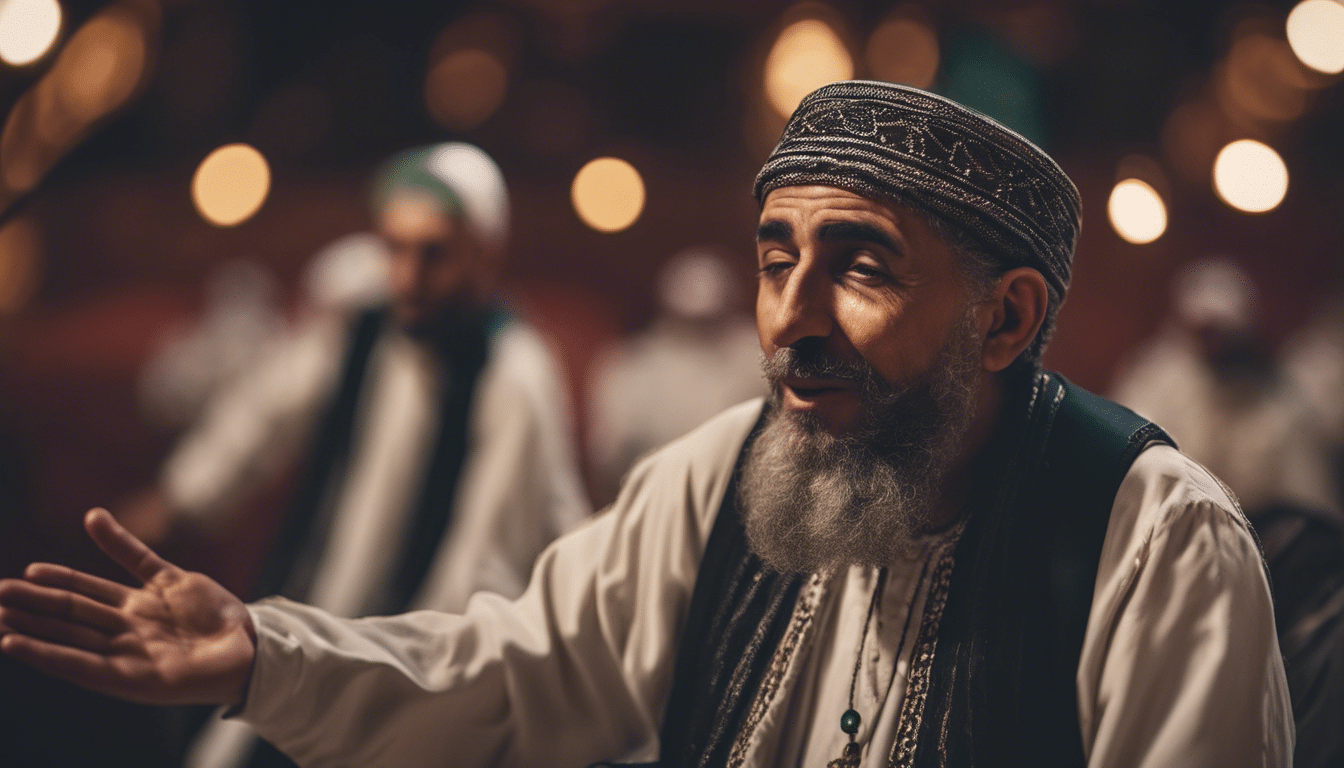
In the swirling dervishes and the transcendental chants, one can find the soul of Sufism delicately woven into the fabric of its music. The mystique of Sufi melodies is not just an auditory experience but a journey towards the divine, capturing the quest for spirituality and eternal love. As the harmonious sounds fill the air, they become an invitation to explore the profound depths of Sufi philosophy through the language of music.
Underneath the layers of harmony and rhythm, Sufi music is an expression of the ineffable; it’s where poetry, melody, and spirituality intertwine to guide the seeker’s heart towards the Sublime. The essence of Sufi philosophy, encapsulated in these melodies, is an ongoing dialogue with the Divine, a soulful yearning for union, and an expression of divine love and devotion.
The Historical Roots of Sufi Music
Sufi music has been an integral part of Islamic mysticism since the early centuries of its inception, with regional influences shaping its diverse forms. As a living tradition, it embraces local cultures, adopting different musical instruments and styles, which allow it to resonate with people from various backgrounds. From the Qawwali of the Indian subcontinent, made famous by singers like Nusrat Fateh Ali Khan, to the whirling ceremonies of the Mevlevi order in Turkey, Sufi music is both ancient and ever-new.
A Bridge between the Earthly and the Divine
For those drawn to the allure of this sacred art, Sufi music serves as a bridge between earthly existence and celestial realms. The repetitive poetry and the repetitive nature of the music aim to induce a state of spiritual ecstasy, facilitating a connection with the Divine. The lyrics often speak of a longing for the Beloved, a metaphor for the divine presence, and it is through this yearning that the listener is transported beyond the mundane.
The Instruments and Voices of Tradition
Central to the experience of Sufi music is the array of instruments, each carrying its unique voice and significance. The ney, a reed flute often used in Turkish Sufi music, symbolizes the human soul’s quest for divine truth. The daf, a type of frame drum, and the santur, a hammered dulcimer, are others that contribute to the intricate tapestry of sounds. The human voice, however, remains the most powerful instrument in Sufi music, capable of conveying the deepest emotions and elevating the spirit.
Experiencing Sufi Music in Contemporary Times
Today, the spirit of Sufi music continues to thrive, reaching audiences worldwide and speaking to the universality of the spiritual quest. While deeply rooted in traditional practices, contemporary Sufi artists creatively merge ancient melodies with modern sounds, making this spiritual heritage more accessible to global listeners. Sites like the Fez Festival of World Sacred Music in Morocco have become hubs where souls gather, drawn by the enchanting melodies and the promise of a shared spiritual experience.
Conclusion: The Timeless Appeal of Sufi Melodies
The rich tapestry of Sufi music, with its deep spiritual roots and universal resonance, continues to captivate and inspire. It is a testament to the power of music to transcend cultural and temporal boundaries, offering a path to the sacred, the divine, and the essence of our interconnectedness. As Sufi melodies continue to echo through time, they invite each listener to partake in a journey that is as much about the soul as it is about the sound.
Rituals and Celebrations: Sufi Music in Moroccan Society
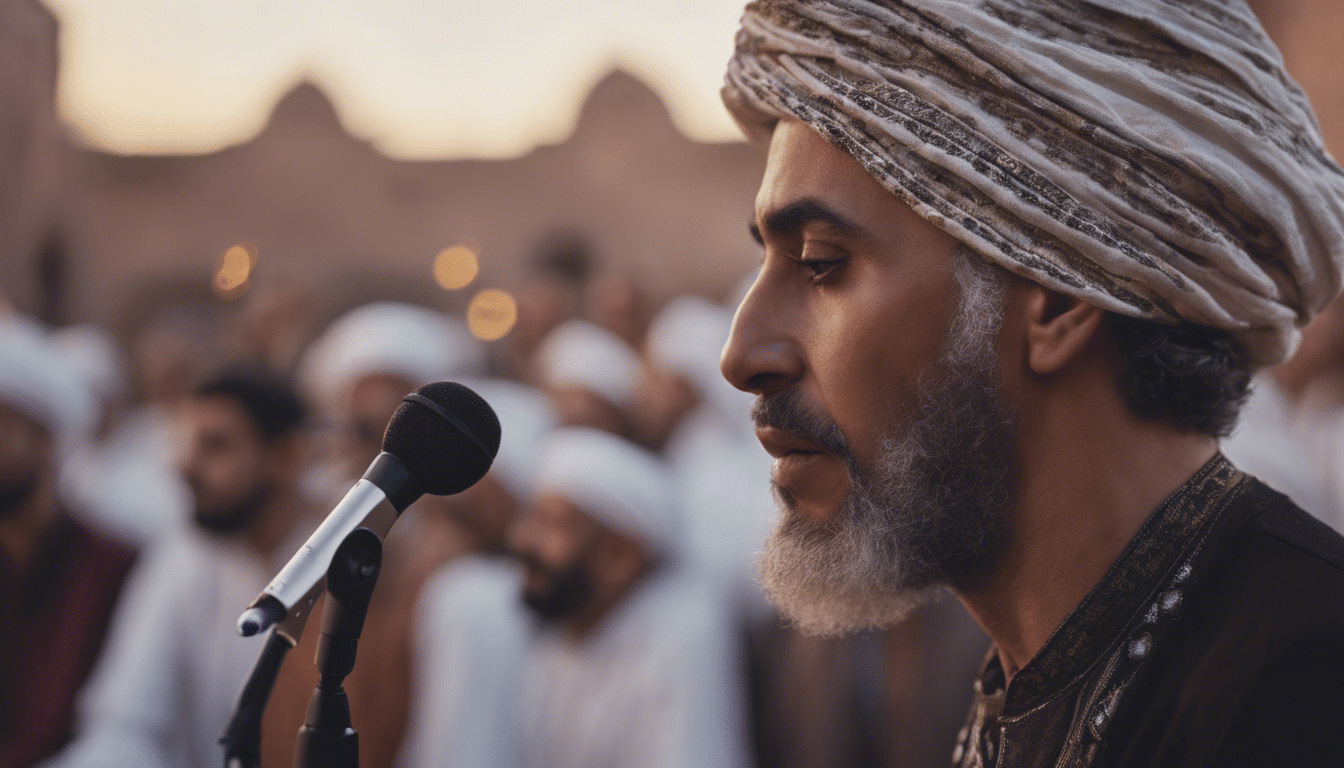
The essence of Sufi music in Moroccan cultural fabric
Nestled within the labyrinth of Morocco’s ancient medinas and echoing against the rustling leaves of the Atlas Mountains, one finds the soulful resonance of Sufi music—a sound that has, over centuries, become an integral component of Moroccan society. At its core, Sufi music is more than just melody and rhythm; it is the musical expression of a profound spiritual journey, one that seeks union with the divine.
In Morocco, Sufi music is not merely listened to; it is experienced, often within the context of zawiya gatherings or during the celebration of religious festivals. The melodies guide the listener into trance-like states, where believers and onlookers alike can touch the intangible and connect with something greater than themselves. This music echoes the heartbeat of a culture steeped in mysticism and devotion—it’s an invitation to explore the rich traditions and rituals that define Moroccan spirituality.
Sufism: a symphony of devotion in rituals and celebrations
When the night falls over Morocco and stars pepper the sky, the mystical chants of Sufi musicians begin their journey across the cool air. These gatherings, known as hadra or sama, are transcendental events where music and spiritual fervor intertwine. Participants sway and dance to the rhymes and harmonies, as this form of worship is both a personal and communal act, uniting hearts in the love and remembrance of the divine.
The Moroccan landscape boasts various celebrations where Sufi music takes center stage. For instance, the feast of Mawlid, celebrating the birth of the Prophet Muhammad, is accompanied by spiritual hymns and chants that carry the essence of Sufism through time. Anniversaries of revered Sufi saints are marked with festivals that often last for days, thronged by crowds seeking blessings, healing, and solace in the uplifting strains of Sufi melodies.
The instruments and voices: bearers of the Sufi legacy
Distinctive instruments breathe life into Sufi ceremonies, with the gnawa guembri, the ney flute, and the darbuka drum setting the tempo for the soul’s journey towards enlightenment. The guembri’s low, resonant twangs; the ney’s haunting, ethereal whispers; and the darbuka’s compelling beats are more than just sounds. They are vessels for stories and wisdom passed down through generations, playing an essential role in preserving the heritage of Sufi music in Moroccan society.
Human voices join in this orchestral offering, reciting poetry and chanting in praise. These vocals are often improvised, a testament to the artist’s deep immersion in the spiritual realm, manifesting in unrestrained, passionate outpourings of faith. This blend of raw, human emotion with traditional instruments creates a soundscape that is uniquely Moroccan, celebratory, and reflective all at once.
Impact on Moroccan society and the world
Beyond the confines of ceremony and ritual, Sufi music has made significant inroads into the global music scene. Embraced by music lovers who may not necessarily share the same spiritual inclinations, its hypnotic beats and soul-stirring melodies have crossed cultural barriers, resonating with universal themes of peace, love, and a sense of belonging.
In Morocco, Sufi music’s influence branches out into other genres, infusing local pop, rock, and hip-hop with a spiritual dimension that is distinctly Moroccan. It serves as a bridge, connecting the youth with their ancestral roots, ensuring that the essence of Sufi tradition remains alive and relevant in a rapidly modernizing society.
Indeed, Sufi music is more than an art form—it’s a force that binds the people of Morocco to their spiritual foundations, reminding them of the beauty and depth within their own culture, while also inviting the world to partake in its timeless and uplifting message.

